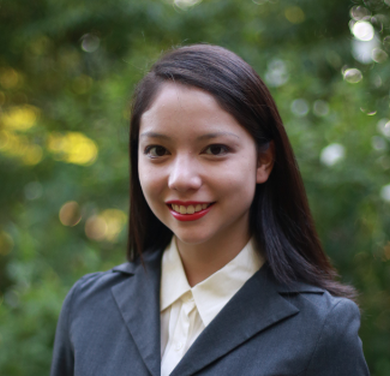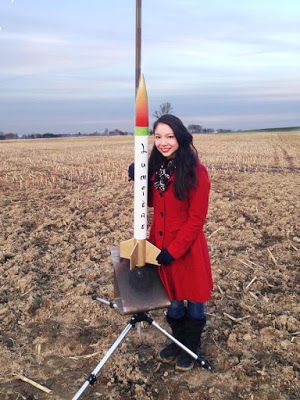Neuroscience
- (engineering) Success Through Failure
Today's New York Times has an article about the engineer, Henry Petroski, who, they say, "seems strangely enthusiastic about failure." For him, "... failures in design and construction present perfect teaching opportunities. They are object lessons...
- Never Let Schooling Interfere With Education
"The Education of Jupiter" Jacob JordaensAs students, many of us struggle to realize the true gifts of a college education. We might learn and education ourselves for other purposes such as preparing for future careers, earning good grades, developing...
- The (wrong) Reasons To Become A Doctor: A Medical Ethicist's Perspective
This post is written from the point-of-view of pre-medical students, but I believe the issues and topics that I discuss can be applied to any undergraduate student who has a desire to learn. As we search for meaning in our lives, we worry most about...
- Participate In A National Study This November!
Description:The University of Minnesota is conducting in an important national study that asks students about what encourages them to choose and persist in science, math, engineering, and computer science majors, and what influences their decisions to...
- Inroads Information Session/application Blitz
Want PAID, consecutive summer internships that can provide you with real-world experience with a corporate sponsor like Lockheed Martin, Target, United Technologies, and more? Apply to INROADS in order to apply to many of these corporate sponsors simultaneously....
Neuroscience
Building and branding a student
An interview with Xyla Foxlin.
In this interview with Xyla Foxlin, sophomore at Case Western University, I want to explore the budding engineer's philosophy and perspective of education. Throughout her life, Xyla has made innovative achievements both academically and personally. She's cultivated a purpose for herself while confronting questions and challenges, including the value of a college education and the intersection of engineering and art.
Hussain: What made you interested in engineering?
XF: I love building things, designing things, and working with my hands. I've always been interested in art, and I still view engineering as just another form of art with a technical spin. But in a nutshell, I think robots are the coolest thing ever and my focus is in robotics.
Hussain: Tell me about Parihug. What is it and what’s so special about it?
XF: Parihug is a pairable teddy bear that allows you to hug someone from anywhere in the world. A breakthrough in telecommunication, these teddy bears are accessible haptic toys; a plush toy that is designed to escape the uncanny valley and help children and adults alike build relationships with loved ones far away. When one bear is hugged, a suite of soft, fabric-based, analog sensors alerts the bear, sending a signal to its mate over the internet, and sending hugs across thousands of miles.
Hussain: You mentioned you’re almost “in college just for a sheet of paper.” In some sense, it might be true that you are in college “just for a sheet of paper.” What makes you think this way?
XF: I think everyone learns very differently, and academia only caters to very specific learning styles. It frustrates me that we are only supposed to learn and think in certain ways and this mentality pushes people out of STEM and even college in general very frequently. In today's society though, a degree is expected, so I'm just here to get that. I do my learning out of the classroom.

Hussain: Some have criticized the idea that college should be a place to prepare students for future careers and be economically productive. Do you think this purpose (to use college in order to be economically productive) has any negative effects on students, society, or anything else? If so, have you ever experienced these negative effects?
XF: I think certain colleges do this very well, and some don't. Colleges have a focus - vocational schools or polytechnic universities do just that - prepare students for future careers. Research and theory based universities focus on preparing students for research and academia. I personally prefer the polytechnic attitude, but that's simply because it is what works better for me. To each their own, I think the important thing is that students can have options.
Hussain: You say you see engineering and art as the same thing. Could you tell us more about what you mean by this?
XF: Art and engineering have the same founding principles: they're a reaction to observations of the world. Many concepts found in art rely on the same principles of physics that engineers have built their foundations on. Both require creativity and I do believe that art training should be a requirement for engineers.
Hussain: Tell us a book you think everyone should read.
XF: "Walt Disney Imagineering: A Behind the Dreams Look At Making the Magic Real"
 |
| source |
Hussain: What made you interested in engineering?
XF: I love building things, designing things, and working with my hands. I've always been interested in art, and I still view engineering as just another form of art with a technical spin. But in a nutshell, I think robots are the coolest thing ever and my focus is in robotics.
Hussain: Tell me about Parihug. What is it and what’s so special about it?
XF: Parihug is a pairable teddy bear that allows you to hug someone from anywhere in the world. A breakthrough in telecommunication, these teddy bears are accessible haptic toys; a plush toy that is designed to escape the uncanny valley and help children and adults alike build relationships with loved ones far away. When one bear is hugged, a suite of soft, fabric-based, analog sensors alerts the bear, sending a signal to its mate over the internet, and sending hugs across thousands of miles.
Hussain: You mentioned you’re almost “in college just for a sheet of paper.” In some sense, it might be true that you are in college “just for a sheet of paper.” What makes you think this way?
XF: I think everyone learns very differently, and academia only caters to very specific learning styles. It frustrates me that we are only supposed to learn and think in certain ways and this mentality pushes people out of STEM and even college in general very frequently. In today's society though, a degree is expected, so I'm just here to get that. I do my learning out of the classroom.

Hussain: Some have criticized the idea that college should be a place to prepare students for future careers and be economically productive. Do you think this purpose (to use college in order to be economically productive) has any negative effects on students, society, or anything else? If so, have you ever experienced these negative effects?
XF: I think certain colleges do this very well, and some don't. Colleges have a focus - vocational schools or polytechnic universities do just that - prepare students for future careers. Research and theory based universities focus on preparing students for research and academia. I personally prefer the polytechnic attitude, but that's simply because it is what works better for me. To each their own, I think the important thing is that students can have options.
Hussain: You say you see engineering and art as the same thing. Could you tell us more about what you mean by this?
XF: Art and engineering have the same founding principles: they're a reaction to observations of the world. Many concepts found in art rely on the same principles of physics that engineers have built their foundations on. Both require creativity and I do believe that art training should be a requirement for engineers.
Hussain: Tell us a book you think everyone should read.
XF: "Walt Disney Imagineering: A Behind the Dreams Look At Making the Magic Real"
- (engineering) Success Through Failure
Today's New York Times has an article about the engineer, Henry Petroski, who, they say, "seems strangely enthusiastic about failure." For him, "... failures in design and construction present perfect teaching opportunities. They are object lessons...
- Never Let Schooling Interfere With Education
"The Education of Jupiter" Jacob JordaensAs students, many of us struggle to realize the true gifts of a college education. We might learn and education ourselves for other purposes such as preparing for future careers, earning good grades, developing...
- The (wrong) Reasons To Become A Doctor: A Medical Ethicist's Perspective
This post is written from the point-of-view of pre-medical students, but I believe the issues and topics that I discuss can be applied to any undergraduate student who has a desire to learn. As we search for meaning in our lives, we worry most about...
- Participate In A National Study This November!
Description:The University of Minnesota is conducting in an important national study that asks students about what encourages them to choose and persist in science, math, engineering, and computer science majors, and what influences their decisions to...
- Inroads Information Session/application Blitz
Want PAID, consecutive summer internships that can provide you with real-world experience with a corporate sponsor like Lockheed Martin, Target, United Technologies, and more? Apply to INROADS in order to apply to many of these corporate sponsors simultaneously....
